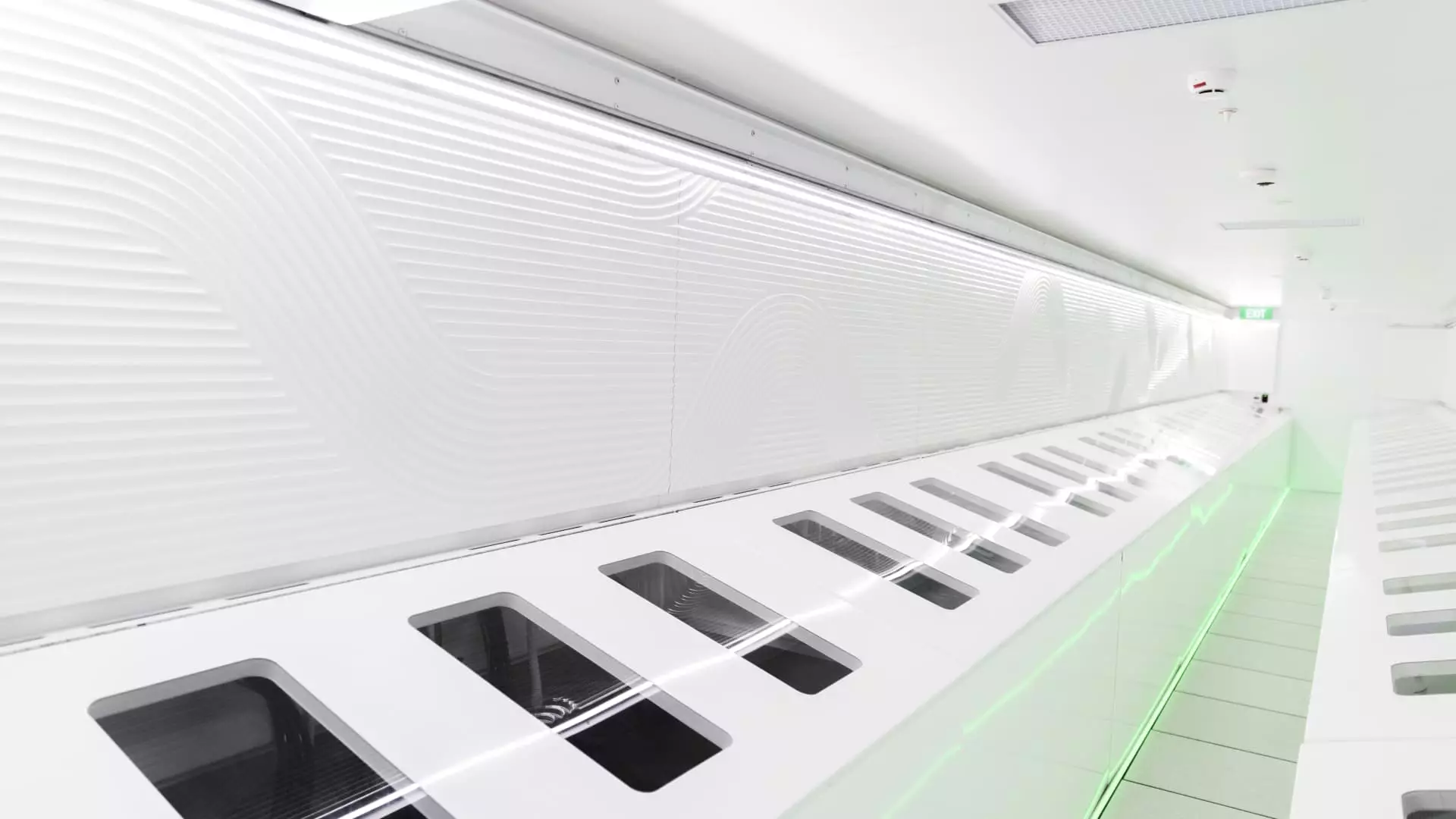The rapid evolution of artificial intelligence (AI) has created unprecedented demands on computing infrastructure, specifically data centers. As the need for processing power escalates, a vital component has emerged: more efficient cooling methods. Traditional air cooling systems seem inadequate in the face of modern computational requirements, leading to innovations like the liquid cooling technology pioneered by Sustainable Metal Cloud (SMC). This company is redefining how data centers operate with a focus on sustainability and efficiency—utilizing its specialized HyperCubes, which are designed for the modern age of AI.
The AI boom is reshaping the technology landscape, leading to increased dependency on powerful processors like those from Nvidia. These processors, essential for executing complex calculations and algorithms, have heightened the necessity for efficient data handling and management systems. SMC has identified this urgent need, leading to the development of their unique HyperCubes, which address cooling issues in a novel way. By submerging servers in a polyalphaolefin synthetic oil, SMC’s approach outperforms traditional air cooling methods by cooling servers more effectively, drastically reducing energy consumption and mitigating overheating risks.
The transition from air to liquid cooling is a significant innovation in the realm of data center operations. SMC claims that its immersion cooling technology can cut energy consumption by up to 50% as opposed to conventional cooling methods. This radical change not only provides an immediate solution to existing data center inefficiencies but allows for more compact server configurations. According to Tim Rosenfield, SMC’s co-founder, these HyperCubes can be integrated into existing data centers or deployed in unused spaces, offering an adaptable and space-efficient solution for modern operators.
This flexibility is critical, as many traditional data centers are ill-equipped for liquid cooling integration. Despite the numerous advantages that liquid cooling presents, the industry must overcome substantial challenges. SMC recognizes that many facilities are still entrenched in decades of established cooling methodologies. However, the emergence of containerized solutions like HyperCubes paves the way for faster, more efficient deployments.
The demand for advanced cooling and computing solutions has fueled SMC’s growth trajectory. With operations currently based in Singapore and Australia, SMC is eyeing international expansion, targeting regions like Thailand and India. This strategy is bolstered by partnerships with giants such as Nvidia and Deloitte, which enhance SMC’s credibility and market position. Their alliance with Deloitte exemplifies how data center innovations are becoming intertwined with enterprise-level needs. By providing Nvidia’s GPU computing infrastructure, SMC offers clients robust solutions for building AI applications—a relationship that promises mutual growth.
The significance of this collaboration is underscored by governmental aspirations in Singapore, which is vigorously pursuing AI development while contending with high energy usage. With over 500 million Singapore dollars allocated for green data center initiatives, SMC stands to benefit from a favorable investment climate that encourages sustainable practices.
Sustainable Metal Cloud is currently seeking to bolster its financial standing through existing equity and debt fundraising avenues, attempting to raise $400 million in equity and $550 million in debt to solidify its expansion plans. With the backing of state investor Temasek and global investors, SMC is strategically positioned to capitalize on the increasing demand for AI infrastructure.
Investing in liquid cooling technology is viewed as a prudent choice among data center operators facing rising operational costs and performance demands. As discussions surrounding liquid cooling proliferate across the industry, many technologists predict that its adoption will accelerate in the coming years. Companies like Vertiv highlight the dual advantages of hybrid cooling systems, which integrate both air and liquid methods to optimize efficiency.
Despite the excitement railings around liquid cooling, significant hurdles remain. The feasibility of transitioning from traditional systems to liquid cooling methods requires a shift in mindset and considerable investment from data center operators. With many facilities still not ready for liquid cooling technologies, education and infrastructure upgrades are imperative.
As the AI landscape continues to evolve, companies like Sustainable Metal Cloud are leading the charge by re-imagining how data centers can operate sustainably while efficiently supporting next-generation technologies. The journey towards more effective liquid cooling solutions holds the promise of not only improving operational efficiencies but also reducing the environmental impact of AI processing demands. However, achieving this vision involves navigating the complexities of established infrastructure and cultivating awareness of the benefits that innovative cooling solutions like those offered by SMC can provide.

